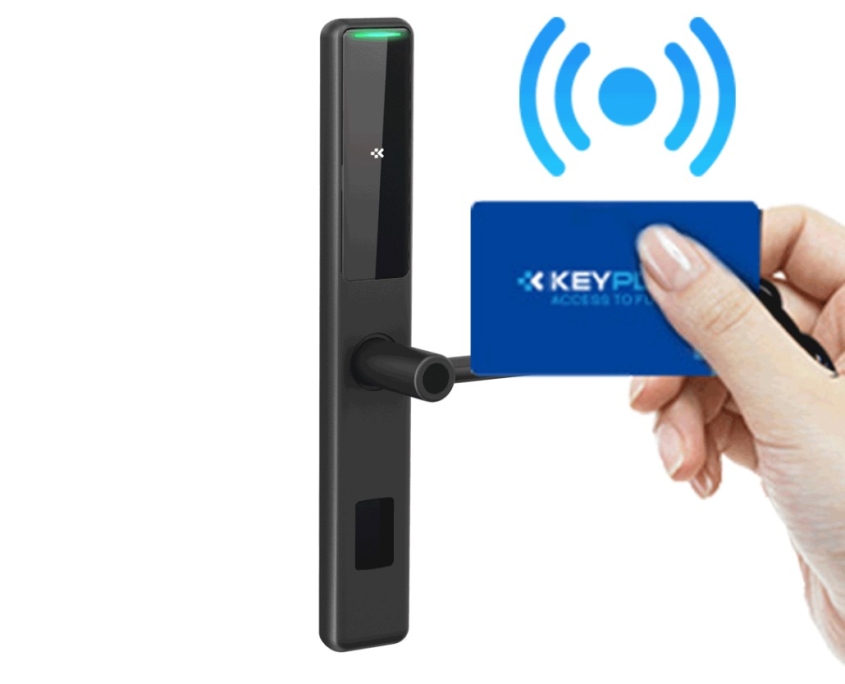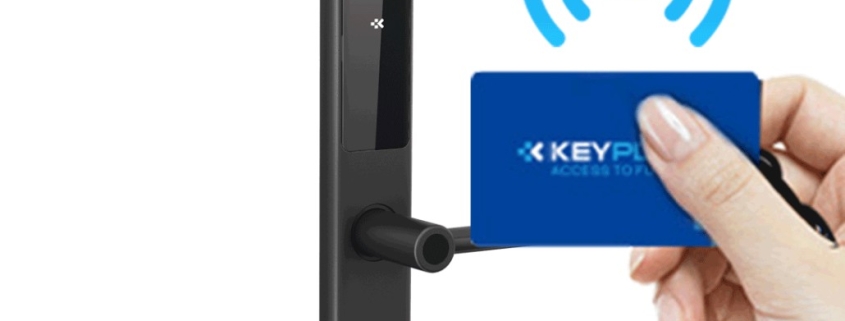Do Hotel Door Locks Use NFC?
Imagine arriving at your hotel after a long flight, bypassing the front desk, and unlocking your room with just a tap of your smartphone. This isn’t science fiction—it’s already happening thanks to NFC (Near Field Communication) technology in modern hotel door locks.
As hotels strive for greater convenience, security, and contactless experiences, NFC is becoming a game-changer. But how widespread is this technology, and how does it work?
In this article, we’ll explore:
-
What NFC is and how it works in hotel locks
-
The benefits of NFC over traditional keycards
-
Which major hotel chains are adopting NFC
-
Security concerns and how hotels mitigate risks
-
The future of NFC and mobile keys in hospitality
What Is NFC and How Do Hotel Locks Use It?
NFC is a short-range wireless technology that allows devices to communicate when they’re within a few centimeters of each other. You’ve likely used it for:
-
Apple Pay and Google Wallet (contactless payments)
-
Public transit cards (like tapping your phone to enter a subway)
-
Hotel keycards (replacing magnetic stripes with a simple tap)
How NFC Hotel Locks Work
-
Check-In & Key Issuance
-
At check-in, the hotel sends a digital key to your smartphone via their app or email.
-
The key is encrypted and stored in your phone’s NFC chip (or a digital wallet like Apple Wallet).
-
-
Unlocking Your Room
-
You hold your phone near the door lock (just like paying with Apple Pay).
-
The lock reads the encrypted key and grants access if authorized.
-
-
Check-Out & Key Deactivation
-
When you leave, the hotel remotely deactivates your digital key—no need to return a physical card.
-
NFC vs. Traditional Hotel Keycards: Why It’s Better
| Feature | NFC (Smartphone/Wearable) | Magnetic Stripe Keycards | RFID Keycards |
|---|---|---|---|
| Convenience | No physical card needed; works with phones & smartwatches | Must carry a plastic card | Must carry a plastic card |
| Security | Encrypted, dynamic keys; harder to clone | Easily copied or demagnetized | More secure than magstripe but still clonable |
| Check-In Speed | Can receive key before arrival (mobile check-in) | Must wait in line for a physical card | Must wait in line for a physical card |
| Eco-Friendly | No plastic waste | Cards are frequently discarded | Cards are frequently discarded |
| Lost Key Solution | Instantly deactivated & reissued via app | Must be reprogrammed at front desk | Must be reprogrammed at front desk |
Key Benefits for Hotels & Guests
Faster check-ins (guests can go straight to their room)
No lost keycards (guests won’t misplace a plastic card)
Enhanced security (NFC keys are encrypted and harder to hack than magstripes)
Contactless experience (important post-pandemic)
Cost savings (fewer plastic cards to replace)

Which Hotel Chains Are Using NFC Door Locks?
Several major hotel brands have adopted NFC technology:
1. Marriott – “Mobile Key” (NFC & Bluetooth)
-
Available at over 5,000 Marriott Bonvoy hotels (including Sheraton, Westin, W Hotels).
-
Guests can check in via the Marriott app and unlock doors with their phone.
2. Hilton – “Digital Key” (NFC & Bluetooth)
-
Works at 80% of Hilton properties (Hilton Honors app required).
-
Supports Apple Wallet integration (no app needed for iPhone users).
3. Hyatt – “Hyatt Mobile Key”
-
Rolling out across Hyatt, Andaz, and Park Hyatt locations.
-
Uses NFC for iPhones & Bluetooth for Android.
Security Concerns: Can NFC Hotel Locks Be Hacked?
While NFC is more secure than magnetic stripes, no system is 100% foolproof. Potential risks include:
1. Phone Theft
-
If someone steals your unlocked phone, they could access your room.
-
Solution: Hotels use time-limited keys and require biometric authentication (Face ID, fingerprint).
2. NFC Relay Attacks
-
Hackers could theoretically intercept NFC signals (though rare).
-
Solution: Encryption and ultra-short-range communication make this difficult.
3. System Vulnerabilities
-
If a hotel’s backend is breached, hackers could issue fake keys.
-
Solution: Strong cybersecurity protocols and regular software updates.
Overall, NFC is far more secure than old-school keycards.
The Future of NFC in Hotels
-
Wearable Tech Integration
-
Smartwatches (Apple Watch, Galaxy Watch) will replace keycards entirely.
-
-
Biometric + NFC Combo
-
Some hotels (like Aloft in NYC) test facial recognition + NFC for ultra-secure entry.
-
-
Voice-Activated Room Access
-
Imagine saying, “Hey Siri, unlock my hotel room”—this may soon be possible.
-
-
Blockchain for Secure Key Distribution
-
Decentralized key management could prevent hacking risks.
-
Final Verdict: Should You Trust NFC Hotel Locks?
Yes! NFC door locks are:
More convenient (no plastic cards to lose)
More secure (harder to clone than magstripes)
The future of hospitality (major chains are adopting it fast)
While no technology is perfect, NFC is a major upgrade over traditional keys. Next time you book a hotel, check if they offer mobile key entry—you might never go back to keycards again!
Would you prefer tapping your phone over using a plastic keycard? The hospitality industry is betting that most travelers will say yes.



